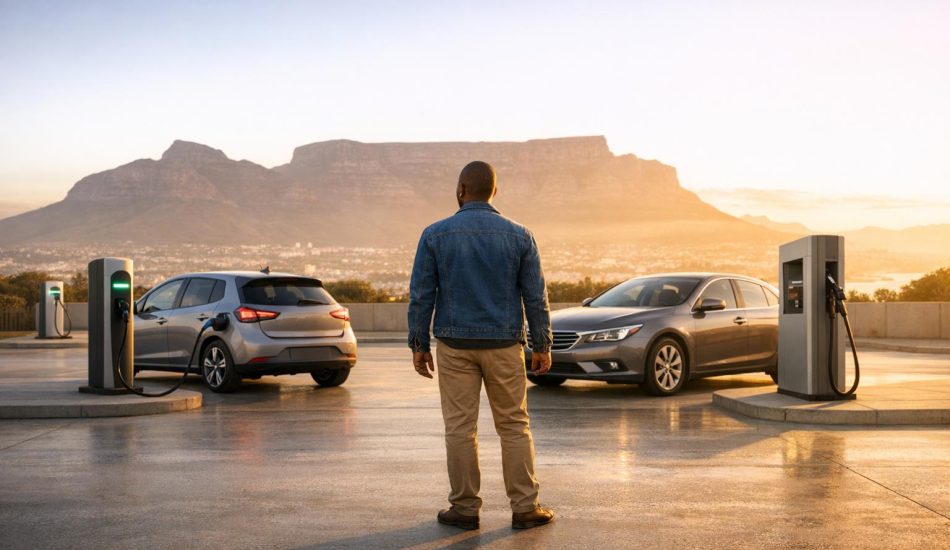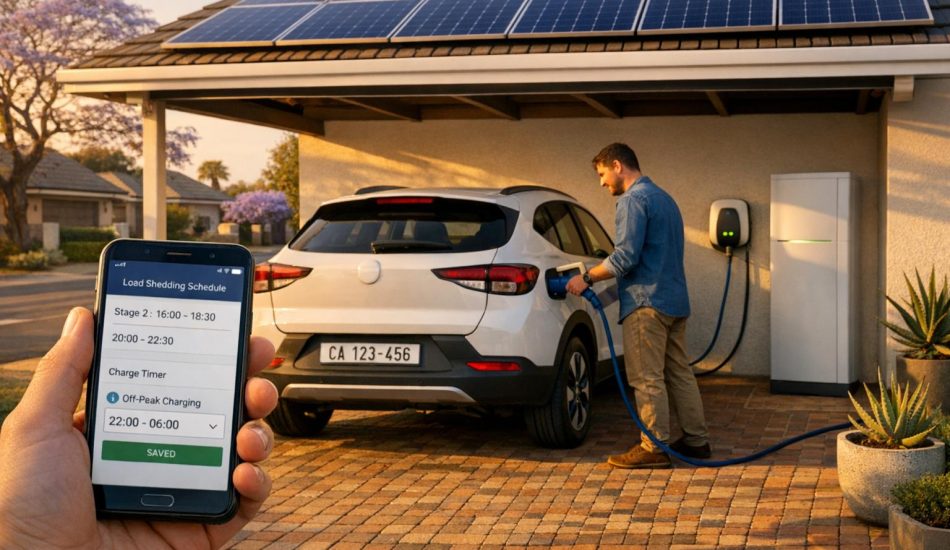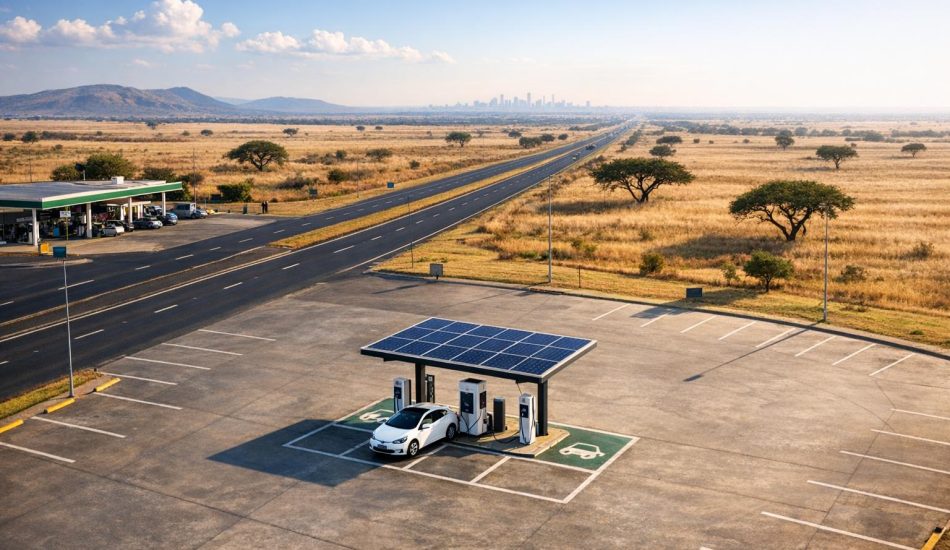
Importing electric vehicles (EVs) to African countries in 2025 has become more accessible thanks to updated policies, tax incentives, and streamlined processes. For example, Morocco now offers tax reductions that can lower import fees for a $25,000 EV to as little as $200-$800, compared to $8,000-$13,750 for traditional vehicles. However, each country has its own requirements, from specific documents to compliance rules. Here’s a quick breakdown:
- Documents Needed: Invoice, Certificate of Origin, Packing List, Ocean Bill of Lading, Marine Insurance Certificate, plus EV-specific certifications like battery safety and environmental compliance.
- Tax Incentives: Morocco leads with reduced duties and VAT exemptions for EVs; Nigeria offers VAT and Import Adjustment Tax exemptions, while South Africa imposes higher duties on EVs than on conventional cars.
- Regulations: Countries like Ethiopia have banned internal combustion engine vehicles (ICEVs) entirely, while others enforce emission standards or require pre-export certificates.
Importers must navigate country-specific rules, ensure proper documentation, and stay updated on changing regulations. For example, Morocco’s new electronic customs system simplifies processes, but missing documents can cause delays. Partnering with experienced agents and budgeting for contingencies like demurrage fees is critical to avoid setbacks.
Africa’s EV market is growing, with over 30,000 units expected in 2025, dominated by Chinese brands. By understanding the rules and taking the right steps, importers can benefit from the shift toward cleaner transportation.
Chinese Tech Driving EV Boom Africa Can’t Afford to Miss
Required Documents for EV Imports
Getting the paperwork right is a critical step in importing electric vehicles (EVs) into Africa. While each country has its own set of rules, there are some universal documents and guidelines that can make the process smoother. Here’s a breakdown of the key documents, country-specific details, and eligibility criteria you need to know.
Main Import Documents
The basic documents for importing EVs include:
- Invoice: Proof of purchase.
- Certificate of Origin: Verifies where the vehicle was manufactured.
- Packing List: Details the shipment’s contents.
- Ocean Bill of Lading: A record of the shipment and its transport details.
- Marine Insurance Certificate: Covers potential damage or loss during transit.
Importers also need to provide proof of their legal authority to import, such as business registration documents and a tax ID.
For EVs, additional paperwork is required. This includes battery safety certificates and manufacturer certificates that outline the propulsion system, battery capacity, and technical specifications. Another critical document is environmental compliance certification from recognized testing authorities, which confirms the vehicle meets environmental standards. This documentation is often necessary to qualify for duty reductions or tax exemptions available for EVs.
Country-Specific Requirements
Each country adds its own layer of requirements to the import process. For instance:
- Morocco: All documents must be submitted digitally through an electronic customs system. A Certificate of Conformity (CoC) is mandatory to show the vehicle meets national safety and technical standards.
- Nigeria: Importers must secure SONCAP approval, which involves submitting a Product Certificate, Shipment Certificate, and an inspection certificate from an approved inspector. Additionally, all vehicles must comply with at least Euro II emission standards.
Some countries still require physical copies of documents in addition to digital submissions. It’s always a good idea to confirm the specific requirements with local customs authorities to avoid delays.
Age Limits and Eligibility Rules
Age restrictions for imported vehicles vary by country. For example:
- Morocco: Conventional vehicles must be less than 5 years old, but EVs and vehicles imported by returning residents may qualify for extensions of up to 10 years.
Meeting technical requirements is equally important. This includes ensuring the vehicle has a minimum battery capacity, a fully electric propulsion system, and compliance with local safety standards. These factors are crucial not only for customs clearance but also for taking advantage of available incentives.
In certain cases, diplomatic and organizational exemptions may apply, allowing qualifying imports to bypass some of these requirements.
Taxes, Duties, and Incentives by Country
When it comes to importing electric vehicles (EVs) into Africa, the financial landscape is anything but uniform. Each country has its own tax policies and incentive programs, which can significantly impact the cost of EVs. Let’s take a closer look at some key examples of how these policies play out across the continent.
Country Tax and Incentive Overview
Tax policies for EV imports vary widely across African nations. Morocco has emerged as a leader in North Africa, offering one of the most favorable environments for EV imports. Since October 2025, the country has implemented generous incentives, including reduced or even eliminated customs duties and VAT exemptions for qualifying EVs.
Nigeria has also embraced EV adoption by exempting imported electric vehicles from both the Import Adjustment Tax (IAT) and Value Added Tax (VAT).
On the other hand, South Africa imposes a 25% import duty on EVs – higher than the 18% duty applied to conventional internal combustion engine (ICE) vehicles. While South Africa does not currently offer specific import incentives for EVs, it has introduced a 150% tax deduction for investments in local production of electric and hydrogen-powered vehicles, effective in 2026.
In Morocco, gasoline and diesel vehicles face customs duties ranging from 10% to 17%, along with a 20% VAT applied to the total customs value plus duties. These policies create stark financial contrasts between traditional and electric vehicles, as shown in the examples below.
Examples of Incentives
To illustrate the impact of these policies, consider the case of Morocco. A conventional gasoline-powered car with a $30,000 purchase price and $4,000 shipping cost could incur a total tax and fee burden of $13,755, bringing the total landing cost to $47,755. In comparison, an electric vehicle that qualifies for Morocco’s EV incentives might face total taxes and fees of just $835, resulting in a total landing cost of $34,835.
This translates into potential savings of nearly $13,000 for an EV compared to a conventional car in Morocco.
However, these incentives often come with strict eligibility criteria. For instance, vehicles must have fully electric propulsion systems, meet minimum battery capacity requirements, and carry specific certifications. Importers are advised to verify their vehicle’s eligibility with customs authorities or experienced shipping brokers before proceeding with a purchase.
Other countries are also taking steps to encourage EV adoption. Rwanda offers duty exemptions for EVs, while Malawi provides VAT reductions for electric vehicle imports. Ethiopia has gone a step further by banning ICE vehicle imports altogether, while also waiving taxes on EVs to create a market that heavily favors electric options.
Contrast this with South Africa, where EV adoption remains sluggish. In 2024, battery electric vehicles (BEVs) accounted for just 0.23% of annual sales, reflecting the impact of higher import duties that inflate EV prices and discourage demand. This stands in stark contrast to the incentive-driven policies in countries like Morocco.
Ultimately, these tax and incentive differences shape the financial feasibility of EV imports. Countries with robust incentives, such as Morocco, make competitive EV pricing possible, while regions with higher duties require more careful cost planning to remain profitable.
sbb-itb-99e19e3
Updated Import Regulations for 2025
In 2025, African nations introduced streamlined regulations to simplify electric vehicle (EV) imports, enforce stricter safety measures, and encourage local manufacturing. These changes aim to make EV imports more efficient and affordable, while building on existing documentation processes and tax incentive programs.
New Rules and ICEV Phase-Out Policies
The updated policies place a stronger focus on the types of vehicles being imported. Internal combustion engine vehicles (ICEVs) are being phased out in favor of battery electric vehicles (BEVs) and plug-in hybrid electric vehicles (PHEVs). Flexible age restrictions for EV imports have also been introduced, speeding up the transition to cleaner transportation options.
Enhanced Safety and Environmental Standards
New regulations require imported EVs to meet higher safety and environmental benchmarks. This includes certified battery safety standards as well as local emission and electromagnetic compatibility testing. These measures are designed to protect consumers and reduce environmental impact, aligning with the broader push for sustainable transportation.
Incentives for Local Manufacturing
To promote domestic EV production, governments are now offering reduced duties and preferential tax rates for components and semi-assembled kits. These incentives are part of a broader effort to support local industries and accelerate the adoption of electric mobility across the continent.
As these policies continue to evolve, importers should remain vigilant for updates to ensure compliance and align with the region’s long-term economic and environmental objectives.
Common Import Challenges and Solutions
Importing electric vehicles into Africa comes with a unique set of challenges that can drive up costs and extend timelines. By understanding these obstacles and taking strategic steps, importers can save both time and money.
Common Import Problems
One of the biggest hurdles is documentation errors, which frequently cause customs delays or even shipment rejections. Common mistakes include mismatched VIN numbers, incomplete invoices, or missing certificates of origin. These errors can lead to fines, shipment holds, or outright rejection at customs.
Another common issue is the lack of pre-export certificates, which can bring the entire process to a halt. For instance, in Nigeria, missing documents like the Pre-Export Certificate of Conformity or SONCAP certification can stop imports in their tracks. Similarly, delays in submitting electronic cargo tracking documents (ECTN/CTN/ACID) often catch importers off guard, resulting in penalties and longer wait times.
Regulatory changes also pose significant challenges. Ethiopia’s decision to expand its ICE vehicle import ban to include trucks by 2025 forced many importers to quickly adjust their plans or face penalties for non-compliance. In Morocco, the introduction of mandatory electronic customs systems in 2025 created additional hurdles, as importers scrambled to meet new technical documentation requirements for EVs.
Navigating compliance requirements is another complex task. Importers must meet country-specific standards, such as Nigeria’s Euro II emissions rule, battery safety certifications, and compatibility with local charging networks. Missing these key compliance documents often results in customs rejection or costly inspections.
Finally, logistical delays at ports can lead to unexpected expenses. For example, at Lagos’ port, customs clearance often takes 5-7 working days. If vehicles aren’t cleared on time, importers face demurrage fees. Experts recommend setting aside 3% of the cargo’s value to cover these potential costs.
These challenges highlight the importance of having a solid plan to streamline the import process.
Solutions and Best Practices
To navigate these obstacles, importers can adopt several practical strategies.
Start by partnering with certified exporters who provide all the necessary technical and safety documentation upfront. This reduces the risk of errors and ensures compliance with evolving regulations.
Working with local customs clearance agents is another smart move. These professionals are well-versed in country-specific rules and can efficiently handle electronic documentation systems, helping to avoid unnecessary delays.
Submitting documents early is crucial. For example, filing ECTN/CTN/ACID paperwork at least five days before the shipment arrives gives customs enough time to process everything, reducing the risk of penalties.
Staying ahead of regulatory changes is also key. One Nigerian dealership importing EVs from China in 2025 avoided delays by working with a certified exporter and staying updated on new emission standards. They cleared customs within the typical 5-7 day window, saving on demurrage and ensuring timely delivery to customers.
Using expert platforms like EV24.africa can simplify the process even further. These platforms offer services like document verification, compliance checks, and real-time updates on regulations. They also connect importers with certified exporters and experienced customs agents, helping to minimize errors and delays.
Finally, it’s wise to budget for contingencies. Set aside at least 3% of the cargo’s value for demurrage, as well as extra funds for inspections, compliance testing, or any unforeseen regulatory changes that could affect duties or requirements.
With Africa’s new energy vehicle market expected to surpass 30,000 units by 2025 – dominated by Chinese brands capturing 60% of the market share – importers who adopt these strategies will be well-positioned to seize opportunities while avoiding costly setbacks.
Conclusion: Simplifying EV Imports to Africa
Bringing electric vehicles (EVs) into Africa in 2025 requires careful attention to three key areas: documentation, taxes and duties, and changing regulations. Getting these right can save you from expensive customs delays and setbacks.
Documentation requirements vary widely across the continent. For instance, importing into South Africa demands SABS compliance and ITAC permits, while Nigeria requires SONCAP certification. Meanwhile, Morocco has introduced electronic customs systems that streamline the process but require importers to adapt to digital procedures. Missing even a single document could lead to shipment delays, fines, or outright rejection.
On the financial side, tax structures differ significantly by country, directly affecting your overall costs. In South Africa, a 25% import duty and 15% VAT are applied to EVs, whereas Nigeria imposes a 15% NAC levy but exempts EVs from VAT and Import Adjustment Tax. Morocco, on the other hand, has rolled out generous tax incentives for EVs in 2025, making it a highly attractive destination for EV imports in North Africa. These financial considerations are crucial for planning.
Regulations across Africa are also evolving rapidly. Countries like South Africa maintain high import duties, while Nigeria offers significant incentives. Keeping up with these shifting policies is vital, especially as Africa’s electric vehicle market is projected to exceed 30,000 units by 2025, with Chinese brands expected to dominate 60% of the market share. Governments are increasingly introducing tax breaks, VAT exemptions, and other incentives, alongside stricter compliance requirements. Navigating these changes effectively often requires expert assistance.
The sheer diversity of requirements across Africa’s 54 markets makes professional guidance indispensable.
"At EV24.africa, we simplify the process of importing and buying electric vehicles in Africa. Our expertise ensures a seamless experience, so you can focus on driving the future of mobility."
Whether you’re importing a single Tesla or planning to bring a fleet of BYD vehicles to market, having access to transparent pricing, robust compliance support, and flexible financing can turn a potentially daunting process into a manageable one.
Africa’s EV import landscape is evolving at an incredible pace, offering new opportunities as governments introduce supportive policies and infrastructure improves. By understanding the requirements, staying updated on regulations, and seeking expert help when needed, importers can confidently navigate this dynamic market and play a part in shaping Africa’s electric mobility future.
FAQs
What challenges might you face when importing an electric vehicle to Africa, and how can you address them?
Importing electric vehicles (EVs) to Africa presents a few hurdles that are worth considering. One major challenge is the lack of widespread charging infrastructure in certain areas. This limitation can make it harder to use EVs efficiently. Before making the move, check the availability of charging stations in your destination. You might also want to explore options like installing home charging equipment or carrying portable chargers to ensure you’re covered.
Another obstacle to keep in mind is the risk of customs delays or unexpected fees during the import process. To reduce the chances of complications, double-check that all necessary paperwork – such as permits, invoices, and proof of compliance with local laws – is accurate and ready. It’s also a good idea to understand the specific taxes and duties that apply in the country you’re importing to so you’re not caught off guard.
With careful planning and research, you can navigate these challenges and make the process much smoother.
What are the tax incentives and import duties for electric vehicles in African countries, and which ones offer the best conditions?
Tax policies and import duties for electric vehicles (EVs) vary greatly across African nations. Rwanda leads the pack with zero import duties and generous tax breaks that extend through 2028, making it one of the easiest places to bring in EVs. Similarly, Malawi offers appealing terms, including a 0% import duty and reduced VAT. On the other hand, South Africa imposes steeper import duties, with rates as high as 25% on EVs.
If you’re planning to import an EV, it’s crucial to investigate the specific policies of each country, as they can heavily influence both the cost and practicality of your decision.
What environmental and safety standards must imported electric vehicles meet in Africa, and how can importers ensure compliance?
Imported electric vehicles (EVs) in Africa are required to meet a range of environmental and safety standards, which can differ from one country to another. These standards often cover areas like emission limits, battery safety protocols, and vehicle inspections to confirm roadworthiness and reduce environmental impact.
To navigate these requirements effectively, importers should:
- Understand the regulations for the destination country: Each nation has its own set of rules, so researching specific import standards is crucial.
- Secure proper certifications: Make sure the EV comes with essential documents, such as emission compliance certificates and safety inspection reports.
- Engage with local experts: Collaborate with customs officials or experienced import agents who are well-versed in the process to avoid unnecessary complications or fines.
Keeping up-to-date with regulatory changes and partnering with knowledgeable professionals can simplify the import process and ensure all standards are met efficiently.




